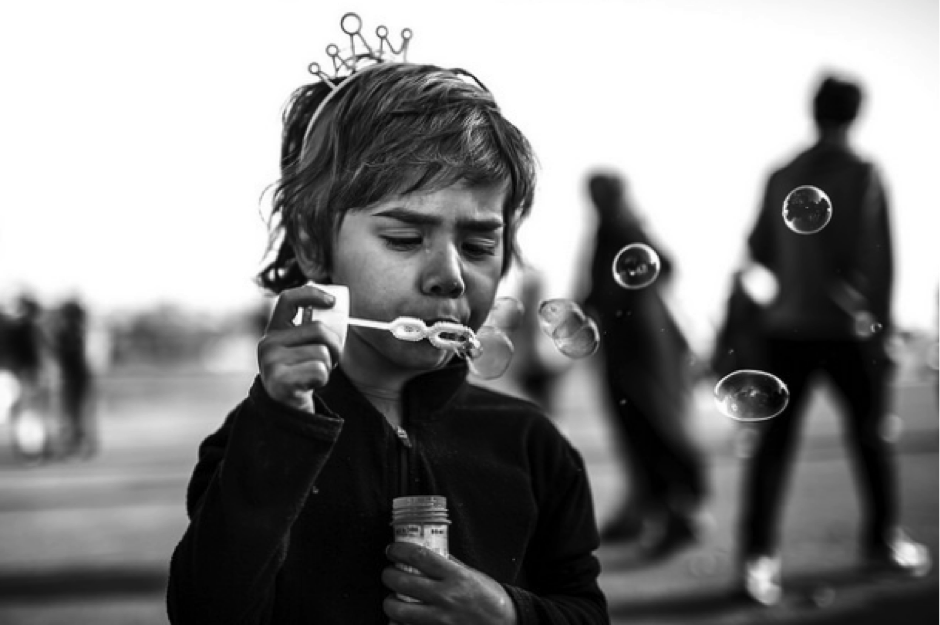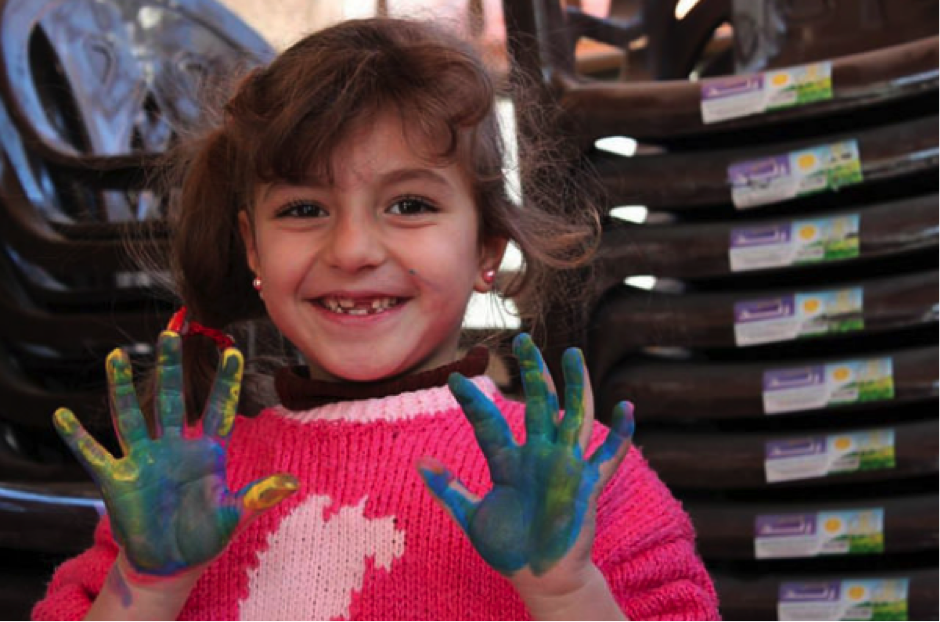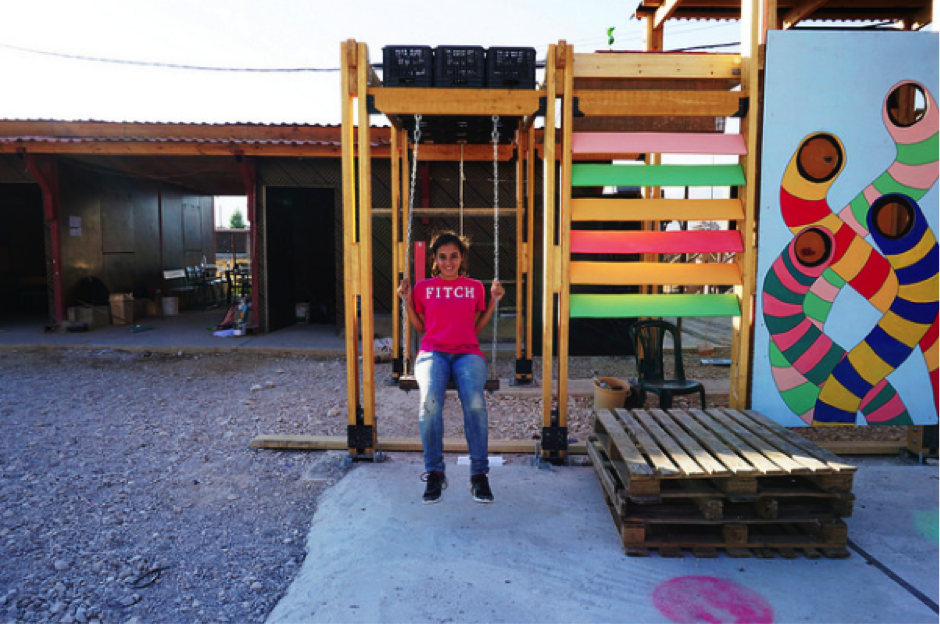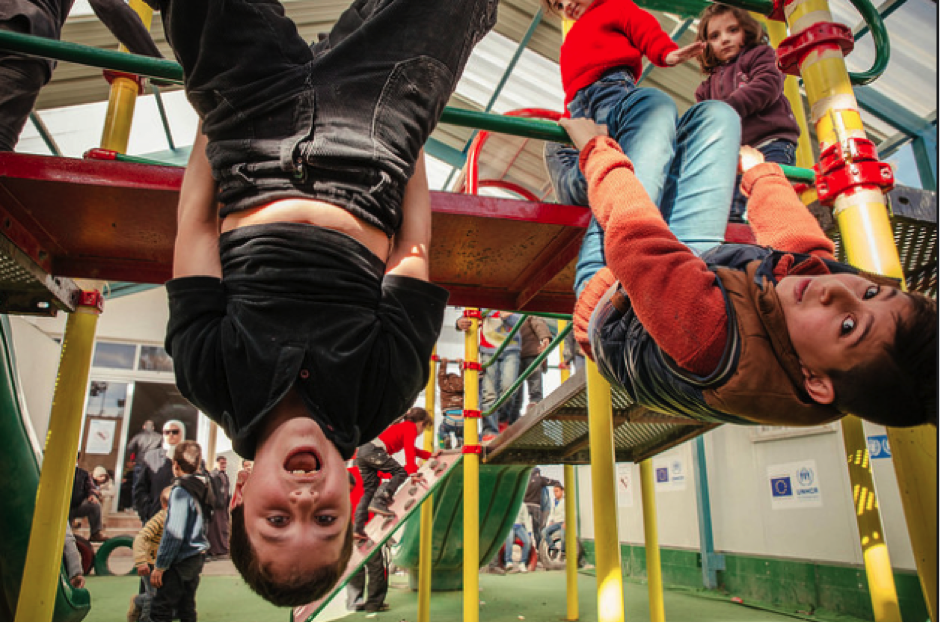Playing in a Refugee Camp
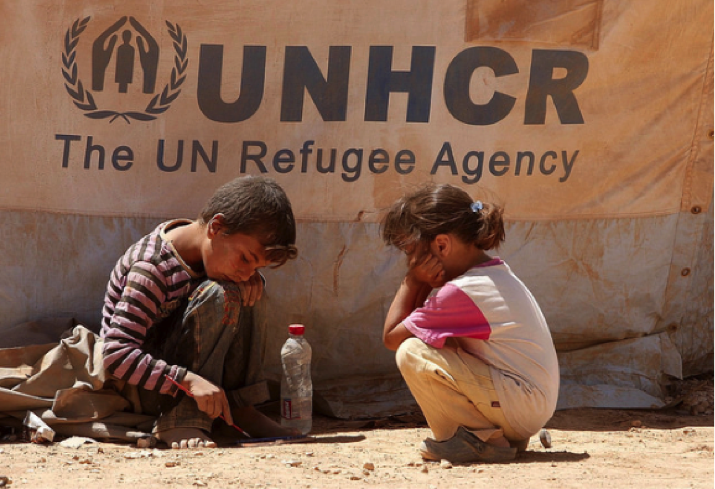
Childhood is one of the most cherished and memorable periods in life. Think of the sweet, nostalgic comfort the soul ignites when remembering the mischievous games you’d play with your best friends, running freely through the neighborhood, or skipping rope on the sidewalk.
I recall many joyous moments from my childhood. Particularly, it was a really special occasion when my cousins and I would reunite and put on the most spectacular circus. We would wear torn wigs and old sparkly dresses. Anything unusual found in the closet we would use. Playing, pretending and creating fantasized worlds— these things are essential not only for a child’s social development but for their education. This is what may be dangerously lacking in the lives of Syrian refugee children in Lebanon.
We sometimes take for granted the importance of children being able to play and live in their own imagined worlds. Besides nurturing creativity, playing is essential to development because it contributes to the cognitive, physical, social and emotional well-being of children. Unfortunately, this really is lacking more and more in the lives of children that live in conflict areas or those that have had to flee from their home country.
Image Credit: flickr/Vagelis PoulisMany Syrian refugee children have experienced violence and extreme instability. The international organization "Right to Play" promotes activities and uses sports and games as tools for learning. "Play is a powerful tool for building resilient people and peaceful communities. It encourages inclusion, teaches conflict-resolution and creates an opportunity for learning. It helps children develop essential life skills needed for a brighter future" (Right to Play).
It’s heartbreaking to think that childhood can be taken away from you, but there is hope yet as we have seen some refugee camps taking the initiative to build and develop recreational activities for refugee children. Children who have witnessed traumatic events need care, support and need to have the opportunity to play.
At risk is an entire generation who are losing the essence and experience of childhood and more importantly, an education which could eventually contribute to lifting them out of their marginalized position and grow towards making changes in their home country. According to "Our World," over four million Syrian refugees have fled Syria since 2011, of which nearly one million are not attending school. Though humanitarian actions are ongoing, there is still a lot of work to do for the education of children in areas of conflict or natural disasters. Quality education must be available and accessible and is the foundation for sustainable development. Number four of the United Nation's Sustainable Development Goals is to promote quality education and empower people, especially children, to have and to make a better future.
Image Credit: flickr/Syria Relief and DevelopmentEducation should be prioritized in times of crisis to give children a sense of normality and a daily routine. If we don’t provide support and opportunities for the refugee children, we could literally deprive an entire generation of basic human rights and sound education. It’s important to provide educational and recreational activities for them or else who will shape the future?
Playful activities are an essential component in rebuilding the education and identity of Syrian refugee children. The Kayany Foundation in Bekaa, Lebanon has partnered with the American University of Beirut’s Center for Civic Engagement and Community Service in building “Ghata” school campuses, which are easily assembled classrooms in refugee camps.
Together with architects of CatalyticAction, they build playgrounds and courts to engage boys and girls in playing, to help them socialize and learn how to have fun again.
Image Credit: flickr/CalatyticActionDuring the construction of the playground, the children were able to participate and actually help to build the recreation area. The participatory workshops enabled the children to design their own playground, which allowed them to feel part of something positive and productive. Bringing back laughs and smiles to Syrian refugees is what drives this project and creates an opportunity for the children to rebuild their childhood memories.
Image Credit: flickr/European Comission DG ECHOThis innovative project is able to provide children with playing facilities and allows them to develop confidence and enjoy being a child. Running, jumping, climbing, these activities enable children to develop their imagination and connect with their new environment and the reality of being away from war zones — instead they get to simply playing games.
Beyond the necessity of continuing their education, children are children and need to be engaged with fun activities. Children that have lost everything should be able to create new, good memories, express their own ideas and feel safe. It’s important for them to engage with different games and have the opportunity to construct and imagine their own worlds.

